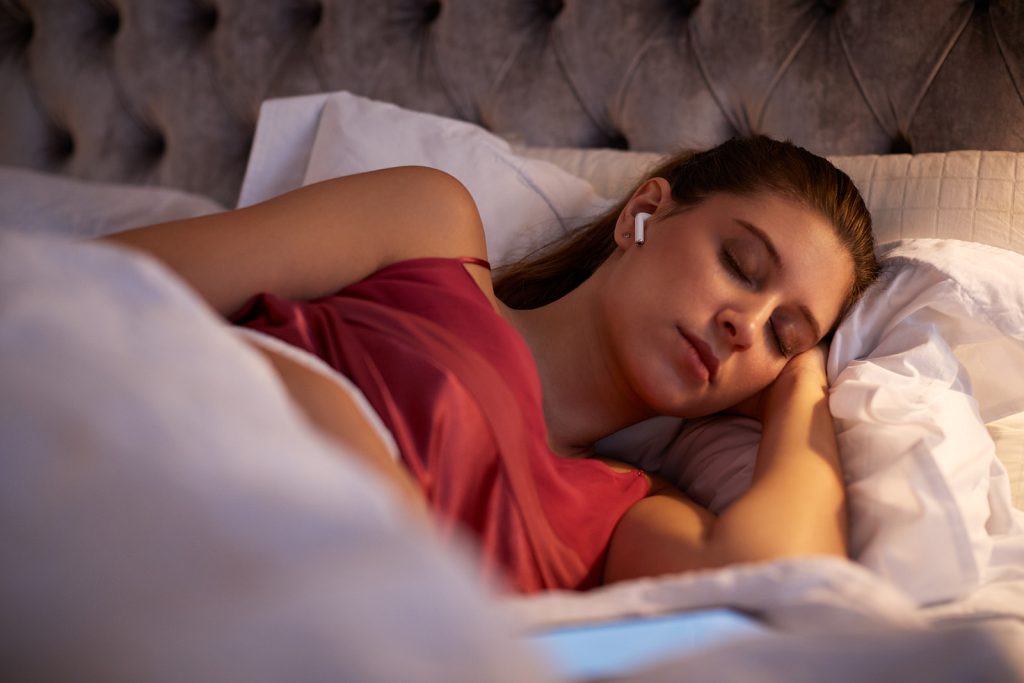This week, Joe and Terry speak with sleep expert and medical communicator extraordinaire Dr. Roger Sechelt. Board certified in sleep medicine, he talks about why we need enough sleep and how much of it is enough. And if you’re having trouble sleeping, what can you do? Dr. Sechelt offers plenty of practical suggestions that go beyond sleeping pills.
You can tune in to your local public radio station or watch the live stream on your computer or smartphone at 7 a.m. EDT (web). Link here You can find out which stations are broadcasting us. If you can’t hear the broadcast, you can also listen to the podcast later. You can subscribe through your favorite podcast provider, download the MP3 using the link at the bottom of the page, or listen to the stream of this post starting July 29, 2024.
Why is sleep important?
Dr. Sehelt likens our bodies to Disneyland. The Magic Kingdom requires a lot of maintenance — removing trash, inspecting rides, restocking shelves, pulling weeds — but it would feel far from magical if employees tried to do those chores during the day when visitors are there. Instead, employees do all the maintenance at night, when the park is closed. Our bodies also require some “trash removal” and other maintenance, some of which happens while we’re asleep.
Sleep is not the same throughout the night. We dream during REM sleep, but this doesn’t happen until after we’ve been asleep for a while. Non-REM sleep includes deep sleep and earlier stages. We cycle through these different types of sleep throughout the night, with more REM sleep closer to morning before waking.
How much sleep do you need?
Sleep needs vary throughout the life cycle. Babies need lots of sleep, but most people know that children need less sleep as they grow. Teenagers need more sleep than adults, but they don’t always get enough. Their sleep cycles often change, which can keep them up late and make it harder for them to get up early in the morning. Most adults need about seven hours of sleep a night, plus or minus an hour. You can tell if you’re getting enough sleep by whether you feel refreshed when you wake up without an alarm clock.
One health issue that can prevent you from getting the rest you need is sleep apnea. In this condition, the tissues in your throat relax, obstructing your breathing. Doctors often recommend CPAP machines for people with sleep apnea. These machines are continuous positive airway pressure machines that keep your airways open and prevent interruptions in your breathing. But not everyone likes CPAPs, which need to be worn carefully to create a good seal.
The vicious cycle of insomnia and anxiety:
Knowing how important sleep is to your health, some people become very anxious when they don’t sleep well. Anxiety is the enemy of sleep. Rather than staying in bed and worrying about not being able to sleep, Dr. Sehelt recommends getting up and doing something less exciting in another part of the house. The bedroom should be reserved for only two activities: sex or sleep. Try not to associate the bedroom with “not sleeping.”
Small screen:
One thing to avoid is checking email or watching videos in bed or right before sleep. Small screens, computers and TVs emit blue light that has the effect of putting your brain on high alert, and tackling a difficult problem or exciting story right before bedtime isn’t going to help you relax.
Listening, however, is another matter: some people find listening to music useful, as long as it’s not too stimulating.
This week’s guest:
Dr. Sehelt is an associate clinical professor in the School of Medicine at the University of California, Riverside, and an assistant professor in the School of Medicine and Allied Health at Loma Linda University.
Dr. Seheult is quadruple board certified by the American Board of Physicians in Internal Medicine, Pulmonary Medicine, Critical Care Medicine, and Sleep Medicine. He currently practices in Beaumont, California, and is an Intensivist, Pulmonologist, and Sleep Physician at Optum California.
He is a regular speaker at conferences and medical, PA and RT associations across the country and is the director of the sleep lab and medical director of the Crafton Hills University Respiratory Care Program.
Roger Sechelt, MD, MedCram, Loma Linda, University of California, Riverside
Medoclam
In 2012, he and Kyle Allred founded MedCram LLC, a medical education company that provides CME-accredited videos used by hospitals, medical schools, and hundreds of thousands of medical professionals (and over 1 million YouTube subscribers) around the world. His passion is “demonstrating” medical concepts and giving people the tools to stay healthy.
We find Dr. Sehelt’s MedCram videos to be fantastic. He explains the science behind COVID and the various treatments extremely well. But he also makes many other complex medical topics easy to understand, a skill that few of my professors in the University of Michigan Pharmacology Department can claim to have.
Dr. Sehelt received the William L. Cover, MD Award for Outstanding Contributions to Medicine from the San Bernardino County Medical Association in 2021 and the Clinical Service Sage Award from UnitedHealth Group in 2022. In 2022, both Dr. Roger Sehelt and Dr. Kyle Allred were awarded the Prince Salmon bin Hamad Al Khalifa Order of Medical Merit by the Kingdom of Bahrain in recognition of their contributions to health policy in the Kingdom of Bahrain.
Listen to the podcast:
A podcast of this show will be available on Monday, July 29th, 2024, after the show airs on July 27th. You can stream the show and download the podcast for free from this site. The podcast includes additional information on cataplexy, sleep paralysis, and kicking and moving in sleep.


